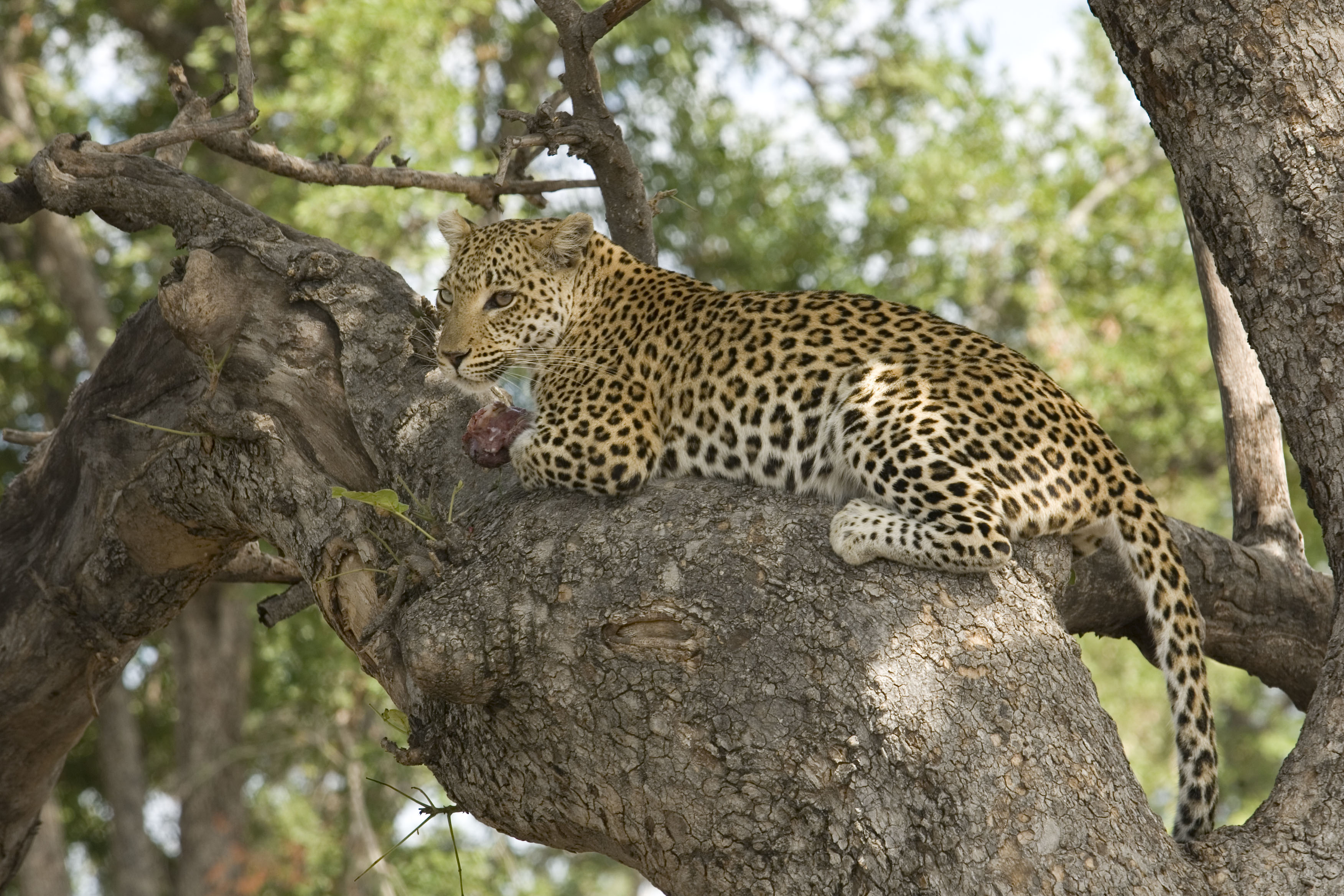
Botswana's updated fees for protected areas have generated US$7.8 million in the first year, significantly exceeding the original forecast of US$1.8 million. The new fee system, introduced in April 2022, was developed in collaboration between the Government of Botswana and BIOFIN.
With over 40% of Botswana's land designated as national parks and game reserves, these areas are vital to both the country’s economy and global efforts to preserve nature and ecosystem services. Local communities rely on these natural resources for clean water and income from tourism.
Park entry fees are an important source of revenue for conservation and local employment. These fees have not been reviewed for over 20 years, resulting in a significant loss of revenue. A study by BIOFIN Botswana revealed that regularly reviewing the fees could generate an important revenue stream for biodiversity conservation.
“We are neither maximizing our benefits for the conservation and management of our natural assets nor promoting sustainable economic growth if tourists have to pay the same fees as they did two decades ago to visit these natural wonders and experience the unique wild places we have to offer here in Botswana,” said Dr Cyril Taolo, Acting Director of the Department of Wildlife and National Parks.
The Botswana Biodiversity Finance Plan proposed a solution: revising the fees. BIOFIN led the effort, developing a business case in collaboration with the government, which approved the review. A benchmarking exercise compared Botswana’s fees with those of other countries, considering fee amounts, the type of fees and the frequency of reviews. After extensive stakeholder consultations, the new fees were approved for implementation in 2021 and came into effect in April 2022.
Photo credit: Department of Wildlife and National Parks of Botswana
This initiative was successful, as the first year’s revenue exceeded the original projections more than threefold — the updated fees brought in US$7.8 million instead of the planned US$1.8 million. Currently, revenue from protected areas is channeled into central finances and supports overall national development, including health services, education and aid to the underprivileged. However, Dr. Taolo emphasized the need for direct reinvestment in park management.
“We need to ensure that a significant portion of the revenue from the protected areas goes directly into the management of the parks, wildlife and ecosystems, maintenance and expansion of facilities, building a well-trained workforce to manage these protected areas and supporting the tourism businesses that form the basis of the industry,” said Dr Cyril Taolo.
The tourism sector in Botswana is highly dependent on the health and conservation of these areas and contributes significantly to the economy through employment, taxes, foreign direct investment, and infrastructure development. The sustainable use of the protected areas provides long-term livelihoods for the communities through the community-based natural resource management system and secures these benefits for future generations. Therefore, it is important to use the increased funds wisely for the protected areas.
Photo credit: Department of Wildlife and National Parks of Botswana
Measures such as inflation adjustment of fees should be systematically applied to maintain revenue. The increase in fees should be accompanied by improved management, including increased investment in the modernization of facilities and other key tourism assets in the protected areas. Without this investment, higher fees may be met with resistance from those who are expected to pay more.
Among the options available to increase the necessary funding for protected areas is to retain an appropriate share of the revenue generated by protected areas. The retention of revenue strengthens the sense of ownership and motivation of protected area staff and communities to improve their services. It also provides more flexibility and autonomy in management to make favorable decisions for the protected areas and communities that are in line with the government’s conservation objectives.
Another option is to increase government allocations for protected area management and investment. This could include a policy change to allow all or part of the fees to be retained directly through a dedicated account of the Department of Wildlife and National Parks.
"We have problems in the park despite the increase in park fees, mainly related to maintenance of facilities and research in the park. Our advice is to assist us in developing a strategy to work with the private sector as there is a willingness to maintain the park while we await the outcome of the discussions with the Ministry of Finance on the withholding of the fees," said Ernest Madimabe, Manager of Chobe National Park.
The updated fee system has shown promising results in its first year. With strategic allocation and continued investment, Botswana’s protected areas can maintain and expand their important role in conservation, the well-being of the population and sustainable economic growth.
Categories
Archives
- mars 2025 (8)
- février 2025 (2)
- janvier 2025 (5)
- décembre 2024 (4)
- novembre 2024 (5)
- octobre 2024 (14)
- septembre 2024 (6)
- août 2024 (9)
- juillet 2024 (7)
- juin 2024 (3)